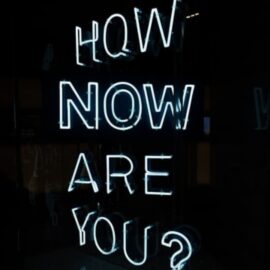

This article is an excerpt from the Shortform book guide to "Strangers In Their Own Land" by Arlie Russell Hochschild. Shortform has the world's best summaries and analyses of books you should be reading.
Like this article? Sign up for a free trial here .
What is a Southern identity? Why is the American south so deeply entrenched in conservative ideology?
Much of the current conservative identity comes from traditional Southern identity. While it doesn’t cover all elements of Southern identity, southerners resent that aspects of life like family, church, and jobs requiring physical labor are cast as backward and ignorant.
Read more about Southern identity and its relationship to conservatism.
Southern Identity and Feelings of Disrespect
This bitterness is reflected in the sentiments expressed by many Southern Tea Party supporters today, who resent the portrayal of white Southerners as racist, ignorant, and backward—the villains in the American story of progress.
Their identity as white and Southern, once a source of great pride, was now something that the wider culture was denigrating. Celebrating your whiteness, they were now being told, made you no better than a Klansman or a Neo-Nazi. What was a source of honor seemed now to be a source of shame.
The economic trends only intensified the feelings of alienation and loss of status. As automation and competition from foreign labor undermined domestic manufacturing, blue-collar conservative Southerners found they could no longer find pride and status in their occupations either. Now, when they are able to find jobs at all, they are increasingly finding work only in the service industry as retail clerks or healthcare workers—“unmanly” jobs traditionally reserved for minorities and women.
Feeling disrespected, undermined, and unable to celebrate their white Southern identity, conservative Southerners seek other sources of identity and honor—through their celebration of traditional values, their commitment to their local communities, their deep religious faith, and their pride in their region.
Adding insult to injury, the castigation of white identity has come as other groups are embracing and celebrating their identities—Black, Latinx, women, LGBTQ, and so on. Tea Party supporters, deeply imbued with an ideology that values hard work and self-reliance, resent what they see as a celebration of marginalization and victimization on the part of such groups.
The Civil Rights Era
The events of the 1960s, particularly the Civil Rights Movement, further shaped the political attitudes of conservative Southern whites and their Southern identity.
During this era, Black people—the South’s traditional underclass—marched, demonstrated, and organized boycotts, strikes, and sit-ins as part of a massive and ultimately successful effort to desegregate the region’s public and private accommodations. Meanwhile, landmark legislation like the Civil Rights Act of 1964 and the Voting Rights Act of 1965 helped Black people achieve some measure of political, social, and economic parity with whites for the first time in Southern history.
While these advances are celebrated as crucial victories for justice in much of the rest of the U.S., white Southerners have a different perspective on them based on their Southern identity. They deeply resented white northern allies of the Civil Rights Movement (whom they saw as moralizing and condescending) descending on their communities to upend what they believed to be the traditional Southern way of life. In some instances, federal troops were even sent into Southern states to supervise integration efforts.
To many white Southerners, the erosion of the region’s traditional racial order represented a downgrading of their own status. Their whiteness itself had always protected them from ever being at the bottom of the social hierarchy. Any movement toward Black equality—particularly one imposed and enforced by the hated federal government—was a deep threat to their status and honor.
To white Southerners, it was a historical replay of the military occupation of the South by northern Union troops after the Civil War.
If we recall Mayor Hardey’s phrase, it seems to people on the right that the U.S. has become a “poor me” nation
.

———End of Preview———
Like what you just read? Read the rest of the world's best book summary and analysis of Arlie Russell Hochschild's "Strangers In Their Own Land" at Shortform .
Here's what you'll find in our full Strangers In Their Own Land summary :
- What drives right-wing politics in America
- How a lack of empathy is increasing the partisan divide
- Why Republican politicians remain popular even if their policies don't help their voters






